- Home
- Ian Mcewan
Machines Like Me Page 15
Machines Like Me Read online
Page 15
‘In my memory I moved through a crowd to get to the kitchen. But the house was small. There must have been no more than a dozen visitors. Sana was sitting on a wooden chair with her back to the wall. There were people around her but no one was talking, and her face – I’ll never escape that face. Stricken, frozen in pain. As soon as she saw me, she stretched out her arms towards me and I stooped over her and we embraced. Her entire body was hot and clammy and trembling. I wasn’t crying. Not yet. Then, while her arms were around my neck, she asked me in a whisper, she actually asked me to be honest with her. Was there something she should know about Mariam, was there something, anything I could tell her that would make sense of this? I couldn’t speak but I lied with a shake of my head. I was truly scared. I couldn’t even begin to grasp the enormity of my crime. Now I was adding to it by condemning my lovely surrogate mother to a lifetime of anguish and ignorance. I’d killed her daughter with my silence, now I was crushing her with it.
‘Would it have made her burden any easier to know that her daughter was raped? I could hear the family crying out, If only we had known! Then they would have turned on me. Rightly. There was and is no way round it, I bear responsibility for Mariam’s death. Seventeen years and nine months old. I left Sana where she sat and hurried out of the house, avoiding the rest of the family. I couldn’t face them. Especially her father. And Mariam’s darling, the little girl, Surayya I was so close to. I walked away from the house and I’ve never been back. Sana wrote to me a few days later, when Mariam’s brilliant exam results came through. I didn’t reply. To be involved with the family in any way would’ve been to add to my deceit. How could I be with them and visit the grave, as she was suggesting, when my presence would be a constant lie?
‘So I grieved alone for my friend. There was no one I dared speak to about her. You’re the first person, Charlie, I’ve told this story to. I grieved and fell into a long depression. I delayed my university course. My father sent me to the doctor, who prescribed antidepressants and I was glad of the cover, and pretended to take them. I think I could have gone under completely that year if it hadn’t been for my one ambition in life – justice. By which I mean, revenge.
‘Gorringe was still living in his bedsit on the edge of Salisbury and that was fortunate, I thought, as I made my plans. I’m sure you’ve guessed what they were. He was working in a café, saving up to go travelling. When at last I felt strong enough, I went in there with a book. I studied him and fed my hatred. And I was friendly towards him when he spoke to me. I let a week go by before I went back. We spoke again – about nothing much. I could see he was interested and I waited for him to ask me round to his place. First time, I told him I was busy. By the next I could see he was getting really keen and I agreed to call on him. I could hardly sleep for thinking and planning. I would never have imagined that hatred could bring such elation. I didn’t care what happened to me along the way. I was reckless, ready to pay any price. Getting him sent down for rape was my sole reason for keeping going. Ten years, twelve, his entire lifetime wouldn’t have been enough.
‘I took a half-bottle of vodka with me. It was all I could afford. I’d had two boyfriends by that summer and I knew what to do. That night, I got Gorringe drunk and seduced him. You know the rest. Whenever revulsion started to get the better of me, I thought of him wrestling Mariam to the ground, ignoring her screams and pleas. I thought of my friend lowering herself into the bath, feeling completely alone, dishonoured and without hope and any wish to live.
‘My plan had been to leave straight after Gorringe was done with me and go to the police. But I was so disgusted and numbed by the experience I couldn’t move. And when I managed to get myself off the bed and dressed, I worried that I had drunk too much and wouldn’t be convincing in front of the desk sergeant. But it worked out well enough in the morning. I made a point of not changing my clothes or washing. So, no shortage of evidence in the right places. The new genetic test had been introduced across the country by then. The police weren’t as unfriendly as I’d feared from what I’d read in the newspapers. They weren’t particularly sympathetic either. They were efficient, and keen to try out their new DNA kit. They brought him in and got a match. From that time on, his life was hell. Seven months later it got worse.
‘In court, I spoke for Mariam. I became her and spoke through her. I was so deep in lies already that my version of that night came easily. It helped that I could see Gorringe across the courtroom. I let my hatred drive me on. I thought he was pathetic when he came up with the story about the texts I was supposed to have sent to a friend called Amelia. It was easy enough to prove she didn’t exist. Not all the press took my side. Some court reporters thought I was a malicious liar. The judge was very old school. In his summing-up he said that I’d knowingly put myself at risk, taking alcohol to a young man’s rooms. The jury still brought in a unanimous verdict. But when it came to sentencing, I was disappointed. Six years. Gorringe was just nineteen. With good behaviour, he’d be out at the age of twenty-two. He paid a bargain price for obliterating Mariam’s existence. But if I hated him with such ferocity, it was also because I knew that he and I were partners, bound forever, complicit in Mariam’s lonely death. And now he wants justice.’
*
Not long after I was thrown out of the legal profession I formed a company with two friends. The idea was to buy romantic apartments in Rome and Paris at local prices, do them up to a high standard, dress them with antique furniture and sell them to wealthy, cultured Americans or to agencies that would do the same. It wasn’t exactly the quick route to our first million. Most cultured Americans weren’t rich. Those who were didn’t share our tastes. The work was complicated and exhausting, especially in Rome, where we had to learn how and whom to bribe among the officials in local government. In Paris it was the bureaucracy that wore us down.
One weekend I flew to Rome to close a deal. It was important for this particular client that I stayed in his expensive hotel. This one was a well-established place at the top of the Spanish Steps. The client was staying there in a grand suite. I came into the city on a Friday evening, hot and harassed from my ride on a crowded airport bus. I was dressed in jeans and t-shirt, with a cheap Norwegian airline bag hanging from my shoulder. I stepped into a beautiful reception area. Just by chance, the manager happened to be standing by the check-in desk. He wasn’t waiting for me – I wasn’t important enough for that. I just happened to breeze in and since he was a courteous gentleman, extremely well dressed and correct, he welcomed me warmly in Italian to his hotel. I only partly understood what he was saying. His voice was expressionless, with little variation in pitch, and my Italian was poor. A receptionist came over and explained that the manager was congenitally deaf but he spoke nine languages, most of them European. Since childhood, he’d been adept at lip-reading. But before he could read mine I would have to indicate which language I was speaking. Otherwise he couldn’t begin to understand me.
He ran through his list. Norwegian? I shook my head. Finnish? English came fifth. He said he could have sworn I was a Nordic sort. So our conversation – pleasant, of no real consequence – could begin. But in theory, an entire world was open to us, and one piece of information had unlocked it all. Without it, his great gift couldn’t come into play.
Miranda’s story was a version of such a key. Our conversation, in the form of our love, could properly begin. Her secretiveness, withdrawals and silence, her diffidence, that air she had of seeming older than her years, her tendency to drift out of reach, even in moments of tenderness, were forms of grieving. It pained me that she had carried her sadness alone. I admired the boldness and courage of her revenge. It was a dangerous plan, executed with such focus and brilliant disregard for consequences. I loved her more. I loved her poor friend. I would do everything to protect Miranda from this beast, Gorringe. It touched me, to be the first to know her story.
Telling it was a liberation for Miranda too. Half an hour after she had finished, wh
en we were alone in the bedroom, she looped her arms around my neck, drew me to her and kissed me. We knew we were starting again. Adam was next door, charging up, lost to his thoughts. It was true, the old cliché about stress and desire. We undressed each other impatiently and, as usual, my plaster cast made me clumsy. Afterwards, we lay on our sides, face to face. Her father still didn’t know what had happened. Miranda still had no contact with Mariam’s family. The visits to the mosque had at first brought Mariam closer, then they seemed futile. She wished Gorringe had got a longer sentence. She remained tormented by her schoolgirlish vow of silence. A simple message, to Sana or Yasir or to a teacher, would have saved Mariam’s life. The cruellest recollection, the one she tortured herself with, was when Sana, embracing her at the extremes of grief, had whispered the question in her ear. It was Sana who found Mariam in the bath. That imagined sight, the crimson water, the lithe brown body half submerged, was another torture, the cause of night-long waking terrors and hideous dreams.
Lying on the bed in the darkening room, lost to all else, we seemed to be heading towards the dawn. But it was not yet nine o’ clock. Mostly, she talked, I listened and asked occasional questions. Would Gorringe return to live in Salisbury? Yes. His parents were still away and he was living in the family house. Was Mariam’s family still in town? No, they had moved to be closer to relatives in Leicester. Had she visited the grave? Many times, always approaching with caution in case one of the family was there. She always left flowers.
In a long conversation it can be difficult to trace how or when the subject comes to shift. It may have been mention of Surayya, the love of Mariam’s life. That little girl must have led us to Mark. Miranda said she missed him. I said I often thought about him. We had failed to find out where he was and what had happened. He had disappeared into the system, into a cloud of privacy regulation and the unreachable sanctuary of family law. We talked about luck, the hold it had over a child’s life – what he is born into, whether he is loved, and how intelligently.
After a pause, Miranda said, ‘And when it’s all against him, whether someone can rescue him.’
I asked her if she thought her father’s love came near to making up for her absent mother. She didn’t reply. Her breathing was suddenly rhythmic. In just a few seconds, she had fallen asleep and was curled against me. Gently, I rolled onto my back, staying as close to her as I could. In the half-light, the ceiling looked charmingly ancient rather than stained and disintegrating. I followed the jagged line of a crack that ran from a corner of the room towards the centre.
If Adam had been driven by cogs and flywheels, I would have heard them turning in the silence that had followed Miranda’s story. His arms were folded, his eyes were closed. The tough-guy look he had in repose, recently softened by adoration, appeared harshly reinstated. The flattened nose looked flatter still. The Bosphorus dockworker. What could it mean, to say that he was thinking. Sifting through remote memory banks? Logic gates flashing open and closed? Precedents retrieved, then compared, rejected or stored? Without self-awareness, it wouldn’t be thinking at all so much as data processing. But Adam had told me he was in love. He had haikus to prove it. Love wasn’t possible without a self, and nor was thinking. I still hadn’t settled this basic question. Perhaps it was beyond reach. No one would know what it was we had created. Whatever subjective life Adam and his kind possessed couldn’t be ours to verify. In which case he was what was fashionably referred to as a black box – from the outside it seemed to work. That was as far as we’d ever get.
When Miranda had finished her story, there was the silence, and then we had talked. After a while, I had turned to Adam. ‘Well?’
He took a few seconds, then he had said, ‘Very dark.’
A rape, a suicide, a wrongly kept secret, of course it was dark. I was in an emotional state and I didn’t ask him to explain. Now, lying next to Miranda as she slept, I wondered if he meant something more significant, the consequence of his thinking, if that was really what it … depends on definitions … That was when I too fell asleep.
Perhaps half an hour passed. What woke me was a sound outside the room. My arm in its cast was wedged uncomfortably against my side. Miranda had rolled away from me, into a deeper sleep. I heard the sound again, the familiar creak of a floorboard. My sleep had been light and I felt no anxiety, but the abrupt click of the door handle turning woke Miranda into a state of confusion and fear. She sat upright, one hand gripping mine.
‘It’s him,’ she whispered.
I knew it couldn’t be. ‘It’s fine,’ I said. I freed myself from her and stood to knot a towel around my waist. As I went towards the door it opened. It was Adam, offering me the kitchen phone.
‘I didn’t want to disturb you,’ he said softly. ‘But I think it’s a call you’d want to take.’
I closed the door on him and came back towards the bed with the phone against my ear.
‘Mr Charles Friend?’ The voice was tentative.
‘Yes.’
‘I hope it’s not too late to call. This is Alan Turing. We saw you briefly in Greek Street. I wondered if we might meet up for a chat.’
*
Gorringe did not appear during the following two weeks. One early evening, I left Miranda in my flat, by her choice, with Adam in attendance, and set off to cross London to Turing’s house in Camden Square. I was flattered and awed by the summons. With a touch of youthful self-regard, I wondered if he’d read my short book on artificial intelligence in which I’d praised him. We were bound by our ownership of highly advanced machines. I liked to think I was an expert on the early days of computing. Possibly, he wanted to take issue with me on the way I had placed such emphasis on the role of Nikola Tesla. He had come to Britain in 1906 after the collapse of his radio-transmission project at Wardenclyffe, New York. He joined the National Physical Laboratory, something of a demotion and a blow to his vanity, and helped in the arms race against Germany. He developed not only radar and radio-guided torpedoes, but was the inspiration for the famous ‘foundational surge’ that produced electronic computers capable of making calculations for artillery fire in the coming war. In the twenties he had been instrumental in the development of the first transistors. Notes and sketches for a silicon chip were found among his papers after he died.
I had written in my book about the celebrated meeting between Tesla and Turing in 1941. The old Serb, immensely tall and thin, and inconveniently trembling, only eighteen months away from death, said in an after-dinner speech at the Dorchester that their conversation had ‘reached for the stars’. Turing’s only comment, made to a newspaper, was that they had exchanged nothing but small talk. At the time he was working in secret at Bletchley on a computer to crack German naval Enigma codes. He would have taken care to be circumspect.
The carriage was almost empty when I got on the Tube at Clapham North. Once we were north of the river, the train began to fill with people, mostly young, carrying placards and furled banners. Yet another unemployment march was coming to an end. At first they looked like a typical rock-and-roll crowd. The humid air carried a scent of cannabis, like a fond memory of a long day. But there was another constituency, a large minority, some of whom carried plastic Union Jacks on sticks – that foolish stock-market position of mine – or wore Union Jack t-shirts. These factions loathed each other but were making common cause. A fragile alliance had been formed, with dissenters on both sides resisting any affiliation at all. The right blamed unemployment on immigration from Europe and the Commonwealth. British workers’ wages were being undercut. Foreign arrivals, dark-skinned and white, were adding to the housing crisis, doctors’ waiting rooms and hospital wards were overcrowded and so were local schools, whose playgrounds were supposedly filling with eight-year-old girls in headscarves. Whole neighbourhoods had been transformed in a generation, and no one in faraway Whitehall had ever asked the locals.
The left heard nothing but xenophobic and racist distortion in these complaints. Their grievance
list was longer: stock-market greed, underinvestment, short-termism, the worship of shareholder value, unreformed company law, the ravages of an unrestrained free market. I went on one march, then gave up after I read about a new car factory starting production outside Newcastle. It built three times as many cars as the factory it replaced – with one-sixth of the work force. Eighteen times more efficient, vastly more profitable. No business could resist. It wasn’t only the shop floor that lost jobs to machines. Accountants, medical staff, marketing, logistics, human resources, forward planning. Now, haiku poets. All in the stew. Soon enough, most of us would have to think again what our lives were for. Not work. Fishing? Wrestling? Learning Latin? Then we’d all need a private income. I was persuaded by Benn. The robots would pay for us once they were taxed like human workers, and be made to work for the common good, not merely for hedge funds or corporate interests. I was out of step with both protest factions and their old struggles and missed the next two marches.
To the wealthier, who stood to lose, the universal wage looked like a call for higher taxes to fund an idle crowd of addicts, drunks and mediocrities. And what was a robot anyway – a humble flat screen, a tractor? As I saw it, the future, to which I was finely attuned, was already here. Almost too late to prepare for the inevitable. It was a cliché and a lie, that the future would invent jobs we had not yet heard of. When the majority was out of work and penniless, social collapse was certain. But with our generous state incomes, we the masses would face the luxurious problem that had preoccupied the rich for centuries; how to fill the time. Endless leisure pursuits had never much troubled the aristocracy.

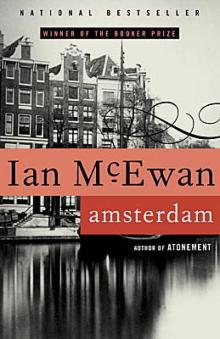 Amsterdam
Amsterdam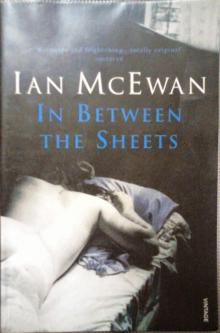 In Between the Sheets
In Between the Sheets Atonement
Atonement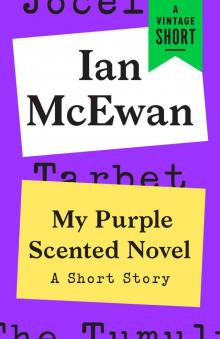 My Purple Scented Novel
My Purple Scented Novel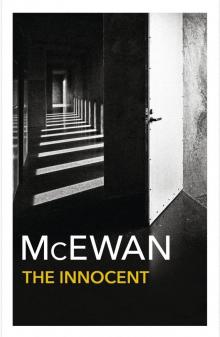 The Innocent
The Innocent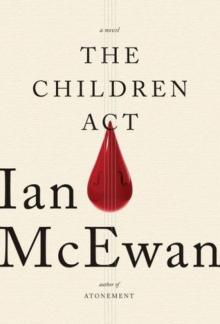 The Children Act
The Children Act Enduring Love
Enduring Love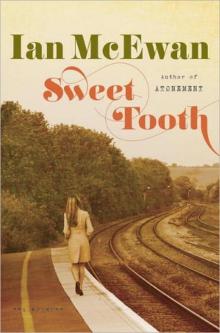 Sweet Tooth
Sweet Tooth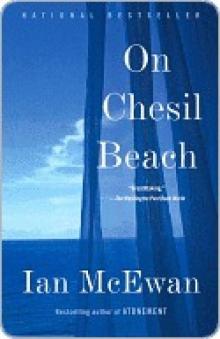 On Chesil Beach
On Chesil Beach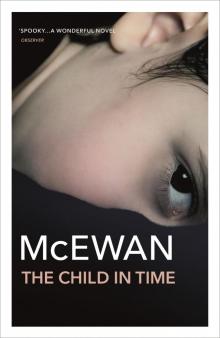 The Child in Time
The Child in Time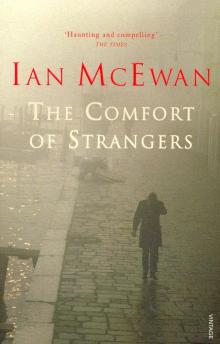 The Comfort of Strangers
The Comfort of Strangers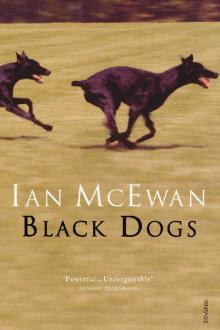 Black Dogs
Black Dogs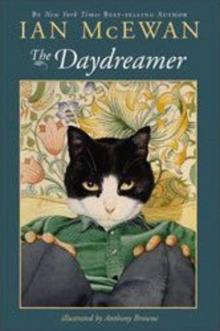 The Daydreamer
The Daydreamer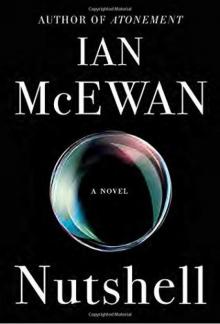 Nutshell
Nutshell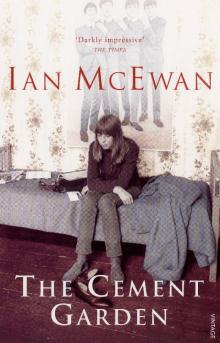 The Cement Garden
The Cement Garden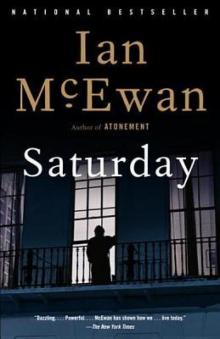 Saturday
Saturday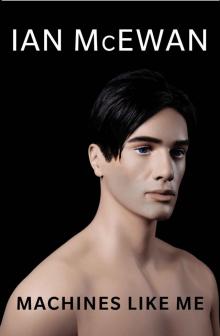 Machines Like Me
Machines Like Me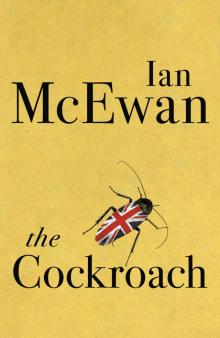 The Cockroach
The Cockroach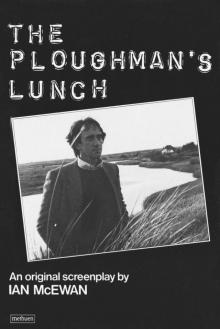 The Ploughman’s Lunch
The Ploughman’s Lunch